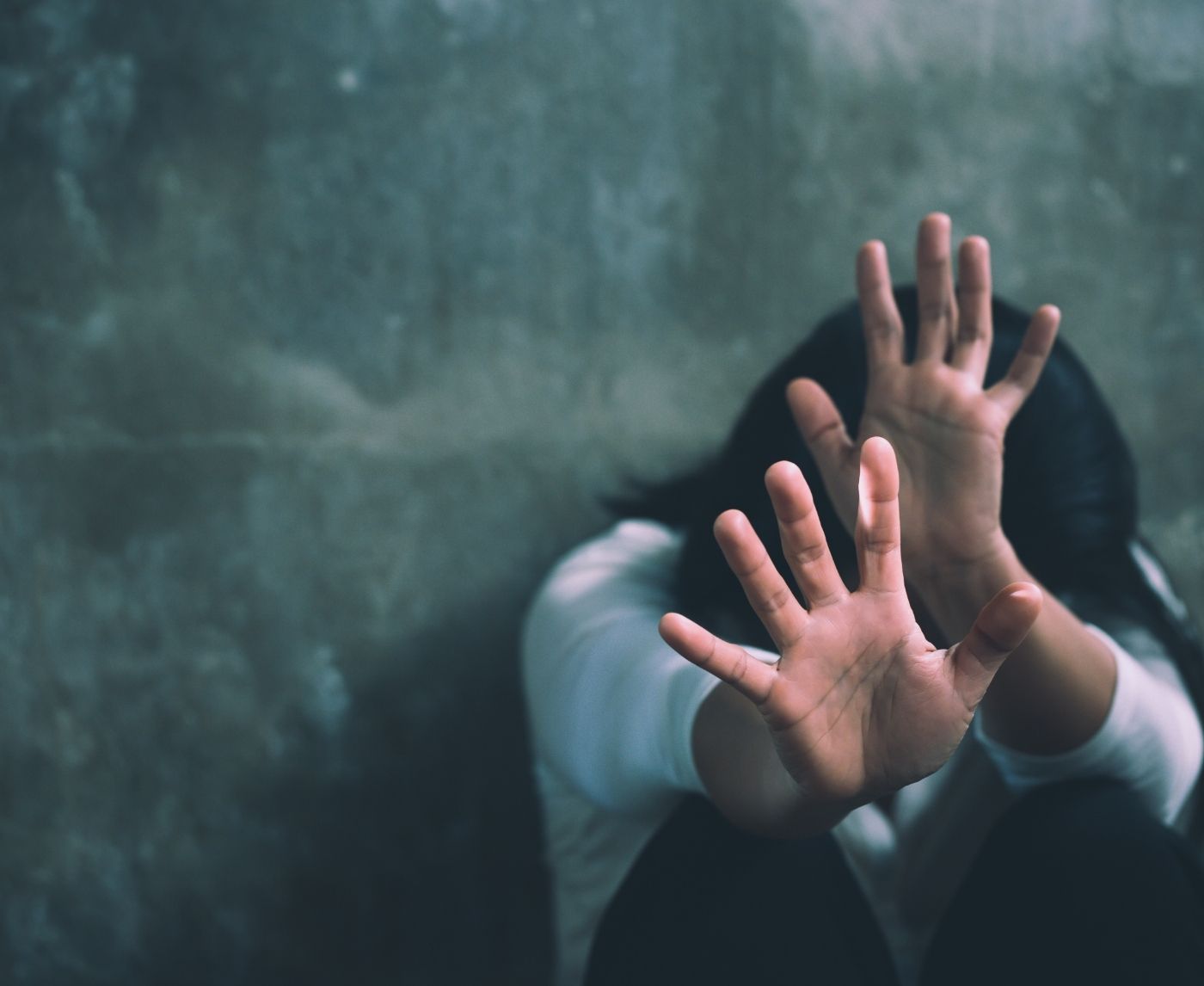The Game-Changing Impact of Home STD Tests on Sexual Health
STD Screening Following Sexual Assault: Recognizing the Health Dangers
Sexual assault is not only a violation of your body but can be extremely damaging to your health, including exposing you to sexually transmitted diseases (STDs).
Why STD Testing Is Necessary After Assault
Most STDs, such as chlamydia, gonorrhea, syphilis, HIV, hepatitis B, and HPV, are transmitted symptomlessly through sexual contact. There is no way to tell if the perpetrator had an STD following a sexual assault unless tests are done.
As per CDC, almost 1 in 5 Americans has an STD at any time. From studies, an estimated 1 in 6 women and 1 in 33 men in the U.S. have survived attempted or completed rape at some point in their lives—and most frequently, the assault involves forced or unprotected sex.
Sexual assault examinations are made to be as thorough as possible. Medical practitioners will usually suggest instant testing for:
- HIV
- Chlamydia
- Gonorrhea
- Hepatitis B and C
- Syphilis
- Trichomoniasis
- Herpes (if lesions are present)
If you don't have time to prepare for a forensic exam (sometimes referred to as a rape kit), you can still be tested confidentially—at a clinic, your doctor's office, or in your home.
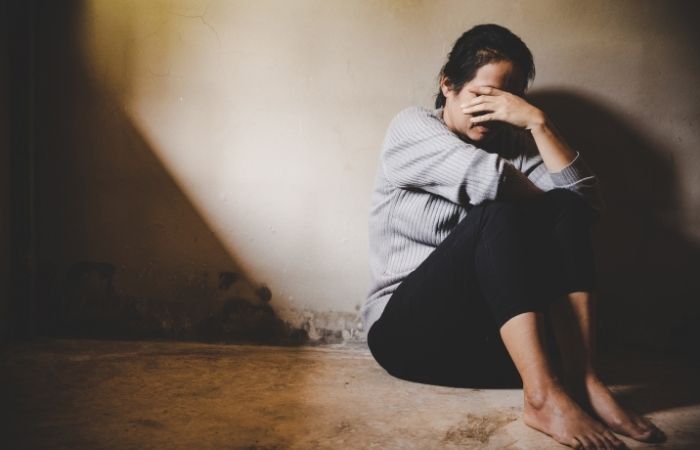
Why Getting Tested Can Be Empowering
STD testing can seem daunting after an already traumatic experience. For most survivors, however, it's not only a medical procedure—it's a personal one.
This is how it can assist:
- Peace of Mind: Being aware of your status can eliminate worry about unknown risk.
- Timely Treatment: The sooner diagnosis results in sooner treatment, which can avoid complications or long-term health consequences.
- Preventive Medications Eligibility: Medications such as PEP (post-exposure prophylaxis) can be given to prevent HIV if taken within 72 hours of exposure.
- Documentation for Future Needs: Having medical records can be useful if you decide to report later—even if you are not sure right now.
Order Now $149.00 $392.00 Check Your STD Status in Minutes
Test at Home with Remedium
8-in-1 STD Test Kit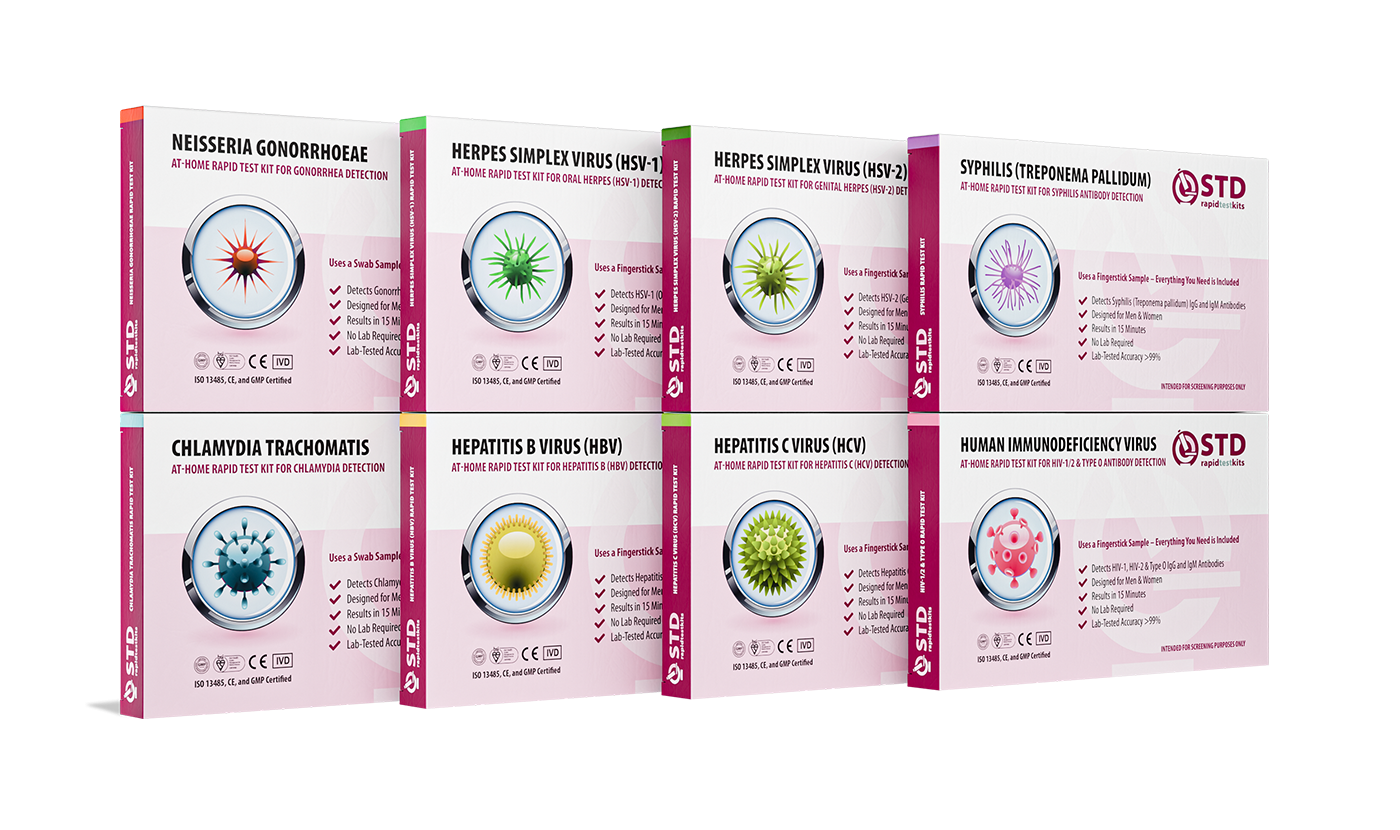




For all 8 tests
You're in Charge of This Process
However, even if the assault made you feel helpless, testing can be a way of taking control over your body and your decisions. Testing is not questioning or blaming. It's care—your care.
What to Expect: The Medical Aspect of Post-Assault STD Testing
Medical attention following an assault usually begins in a hospital's emergency room or at a sexual assault treatment center. You do have the right to say yes or no to any part of the process.
Which Tests Are Normally Performed
Depending on the time and the character of the assault, you might be provided with:
- HIV testing (follow-up and immediate)
- Chlamydia and gonorrhea swabs (vaginal, rectal, or throat as appropriate)
- Urine sample for STIs
- Hepatitis and syphilis blood tests
- Emergency contraception
- PEP (HIV prevention) or Hepatitis B vaccine if required
Some provide follow-up care at 2 weeks, 6 weeks, 3 months, and 6 months based on what you were tested for and how high your level of risk is.
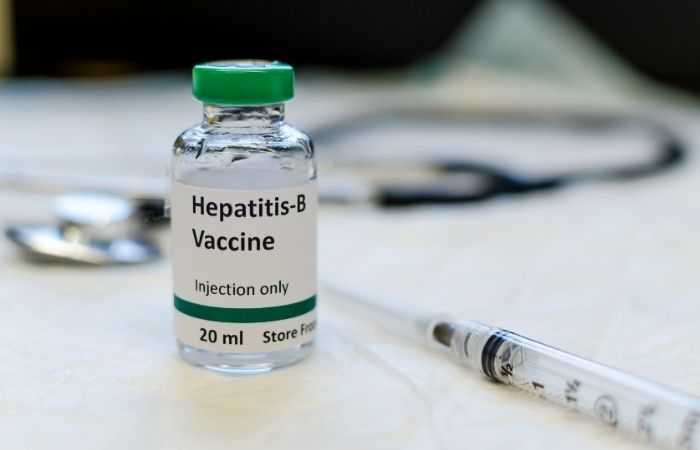
Is It Confidential?
Yes. Privacy laws in most states will cover you if you need care for sexual assault or STD testing. Some states even provide anonymous HIV testing. If you are a minor, laws differ—some will let you agree to STD testing without notifying your parents.
You can also opt to perform home STD testing kits if visiting a clinic is too much for you.
Challenges and Emotional Barriers That Survivors Face
Despite the clear medical importance, many survivors hesitate—or delay—getting tested. This hesitation is valid. Trauma affects every person differently.
Common Reasons Survivors Avoid Testing
- Fear of judgment or blame
- Shame or guilt (which ARE NEVER warranted)
- Concern for privacy
- Fear of reprisal
- Not wishing to repeat it
- Poor access to affordable or safe healthcare
These aren't excuses. These are real barriers. But you're not alone, and there is a solution for each one—without rushing things ahead of your time.
True Survivor Wisdom
"I waited for months before I could even consider going for a test. I was so scared of the result. But when I did, I found that it wasn't about the result anymore—it was about looking after myself again."
— Maya, age 28, sexual assault survivor
Order Now $69.00 $147.00 Check Your STD Status in Minutes
Test at Home with Remedium
3-in-1 STD Test Kit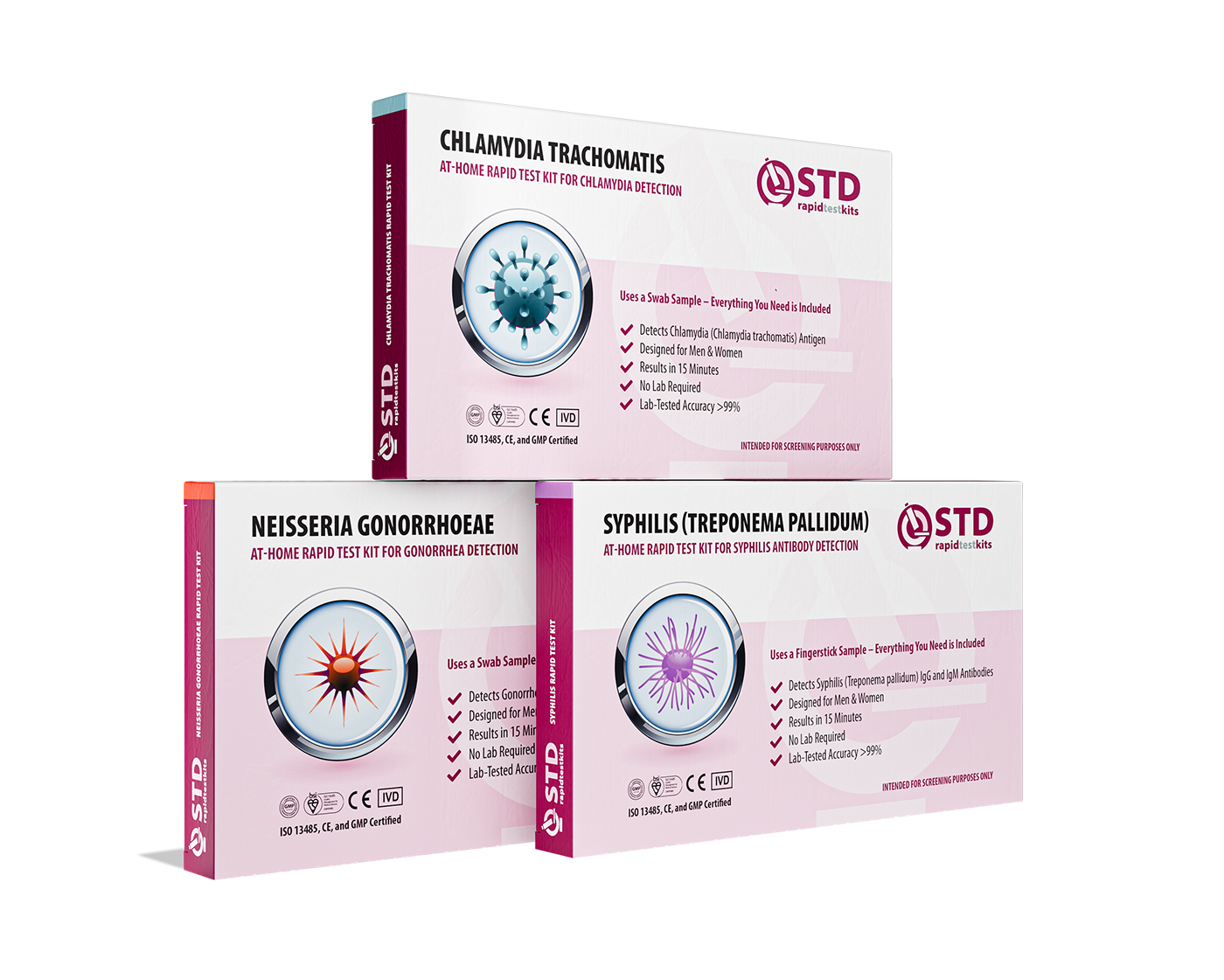




For all 3 tests
Taking Care: Practical Suggestions for Sexual Assault Testing
If you have no idea where to begin or are feeling too much, that's okay. Here are some gentle steps to walk you through, whether it has been hours, days, or maybe months since the assault.
Immediate Actions (Within 72 Hours)
- Go to an ER or clinic that has a Sexual Assault Nurse Examiner (SANE) program.
- Request PEP if there is a risk of HIV exposure—this needs to be initiated within 72 hours.
- Initiate STD testing and inquire about follow-up testing.
- Discuss emergency contraception as appropriate.
Short-Term Measures (Within 1 Month Later)
- Resume STD testing despite negative results for initial tests. There is a window period that some STDs take before becoming detectable via tests.
- Have a test for chlamydia, gonorrhea, syphilis, HIV, and hepatitis B and C.
- Follow up with a support group or therapist.
Long-Term Care
- Follow up every few months (as recommended).
- Consider vaccination for HPV if indicated.
- Discuss continued mental health therapy to address PTSD, anxiety, or emotional triggers.
Remember: there is no "right time" to get tested. When you're ready is the right time.
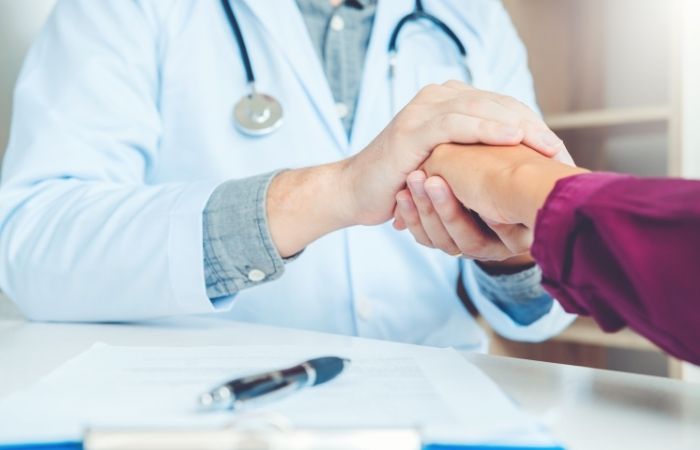
By the Numbers: Sexual Assault and STD Exposure
To get a sense of the urgency and the necessity of STD testing following assault, let's examine some important data:
- It is estimated that 463,634 individuals are sexually assaulted annually in the United States, as per RAINN.
- One study in JAMA reported that as many as 26% of victims of sexual assault were infected with at least one STD within a month after the attack.
- Risk of transmission of HIV per single act of unprotected vaginal intercourse has been estimated at 0.08%, though the risk is far greater with trauma and multiple assailants.
- CDC documented that chlamydia and gonorrhea are the most common sexually transmitted infections diagnosed after rape.
These figures are not intended to frighten you—they are presented to enable you to make smart choices for your health.
What the Experts Say
Medical Specialists
We continually emphasize that STD testing following sexual assault is a patient care problem, not an evidence collection problem. Even if a person does not wish to make a report, we still want that person to be safe and healthy.
— Dr. Lisa Granger, Emergency Medicine Doctor & Sexual Assault Care Advocate
Mental Health Professionals
"Testing is not physical only—it's emotional. Survivors can be re-traumatized. That's why we need trauma-informed care."
— Elena Park, LCSW, Trauma Therapist
Order Now $129.00 $343.00 Check Your STD Status in Minutes
Test at Home with Remedium
7-in-1 STD Test Kit




For all 7 tests
From Then to Now: The Evolution of Post-Assault STD Care
Historically, STD care after rape had been uncoordinated or nonexistent. Survivors had to make police reports before they could receive medical care, and many hospitals lacked training or protocols.
- Due to advocacy by public health practitioners and survivors:
- SANE programs are increasingly common.
- Confidential testing is also more convenient.
Post-rape procedures now involve testing, emergency contraception, and HIV prevention independent of police activity.
Looking Ahead: The Future of STD Testing and Survivor Support
Trauma-informed care and technology advancement are making testing more convenient, confidential, and safer. These include:
- Home STD test kits with discreet delivery
- Rapid HIV and other infection tests
- Raising awareness about the importance of survivor-directed care
- Telehealth counseling for follow-up care
We're entering an era where no one will need to decide between privacy and health.
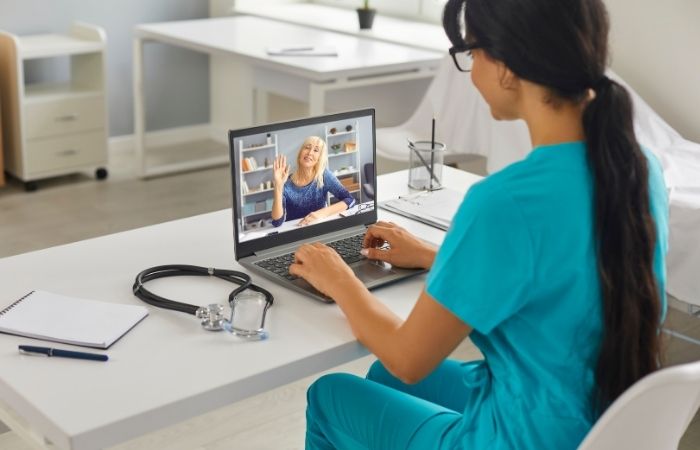
How to Apply This Knowledge in Daily Life
If you are helping a victim of assault
- Listen without judgment
- Provide choices, not orders
- Assist them in finding confidential clinics or services
If you're a survivor
- Go at your own pace
- Talk to someone you trust—a therapist, hotline, or friend
- Select the testing path most convenient for you—clinic, ER, or home
Anything you do, no matter how small, is a part of your healing. It does not need to be perfect. Just yours.
Sexual Assault and the Health Care System: Industry Impact
Health professionals are increasingly recognizing their part in post-assault care. This is most evident in:
- Emergency medicine
- Sexual health clinics
- Mental health services
- Public health education
Increasing numbers of SANE-trained nurses are being utilized by more hospitals, and telehealth clinics provide consultation and testing referrals without requiring an on-site visit.
Order Now $49.00 $98.00 Check Your STD Status in Minutes
Test at Home with Remedium
Hepatitis B & Hepatitis C Test Kit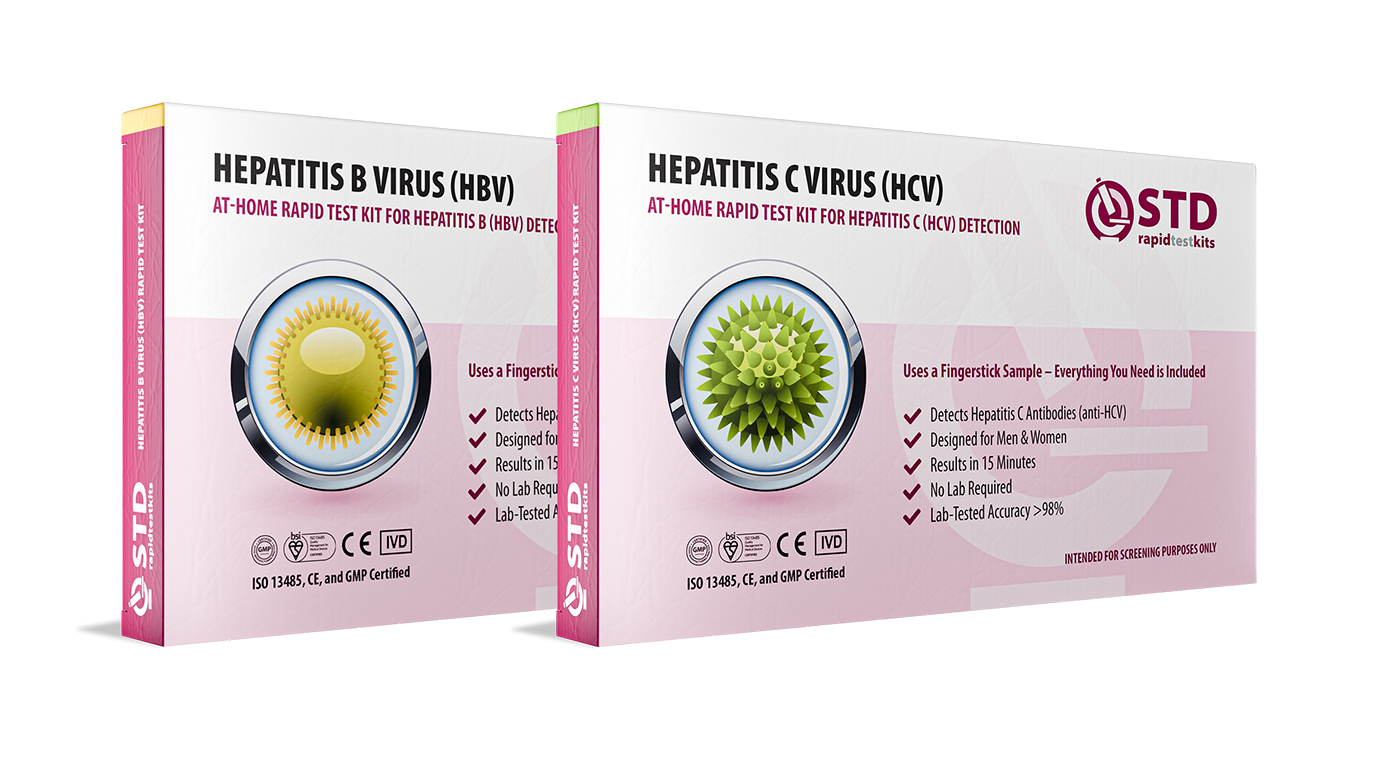




For all 2 tests
Personal Accounts: Recovery Through Trials
"I did a home test kit because I couldn't bear to go back to a clinic. It gave me privacy and control when I had none."
— Dani, 25
"I did the hospital rape kit and all that. I didn't know if I wanted to press charges, but I did know I wanted to be safe. The nurses weren't pushy. They just assisted."
— Jordan, 19
These stories speak not of alternate routes—but of the same aspiration for autonomy, dignity, and compassion.
Debunking Common Myths
"If I don't have symptoms, I'm probably okay."
Not always—most STDs are symptom-free but potentially dangerous.
"Testing is when I'd need to report the assault."
No. You can take a confidential test without informing the police.
"It's too late—testing will not help now."
There is no "too late" for testing. Even after months, it can have an impact.
"Getting tested is admitting it happened."
It is doing something good for yourself. Nothing more, nothing less.
"Home tests aren't accurate."
FDA-approved home tests can be as accurate as clinic tests for common STDs.
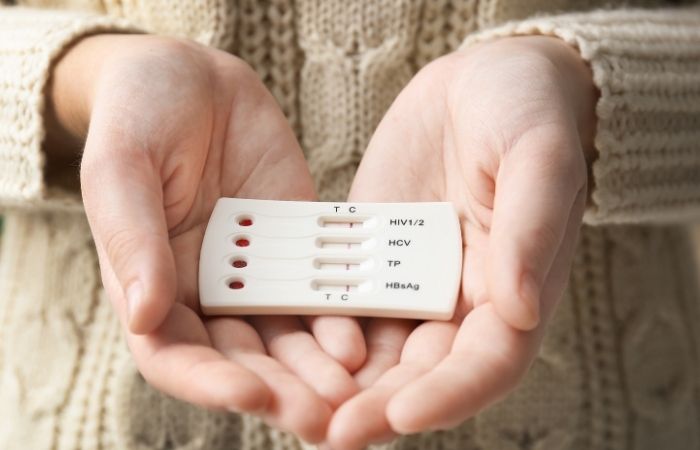
FAQs
1.- When can I get tested after a sexual assault?
As soon as is reasonably feasible—ideally within 72 hours for emergency prevention interventions, although testing is still worth it days or weeks afterward.
2.- Can I still get an STD if it was just oral or anal sex?
Yes. STDs can be transmitted by any type of sexual contact.
3.- Will the test be painful?
No. Most STD tests are urine, swab, or blood tests and are not painful.
4.- Do I need to inform my family?
No. Most clinics and services provide completely confidential treatment, even for minors (depending on your state).
5.- Is HIV the only STD I need to worry about?
No. Chlamydia, gonorrhea, syphilis, HPV, and hepatitis can also be transmitted.
6.- Can home STD testing kits be a valid alternative to a doctor's visit?
Yes. Home kits are a convenient, safe choice for most routine tests.
7.- What if my test is positive?
Most STDs can be treated. A positive test result is a sign you're one step closer to being cured—not a cause for guilt or shame.
8.- Will it affect future relationships or fertility?
Early treatment normally prevents complications. Ensure completion of follow-up tests if required.
9.- Do I need to be tested more than once?
Yes, in general. A few STDs take time to manifest, so follow-up tests are generally advised.
10.- How do I get confidential help?
You can call RAINN (1-800-656-HOPE), Planned Parenthood, or your local clinic. All of them offer 24/7 care, including emotional support.
Order Now $119.00 $294.00 Check Your STD Status in Minutes
Test at Home with Remedium
6-in-1 STD Rapid Test Kit




For all 6 tests
Your Health, Your Power: Taking Back Control After Assault
It is brave to ask questions. It is strong to get treatment. No matter if you are reading this an hour or a year following your attack, you matter—and your health is worth fighting for.
STD testing after sexual assault is not only a medical guideline. It's self-defense. It's something you can choose to do. At a clinic or in the privacy of your own home, today or tomorrow—you have choices.
If you're willing:
- Contact a local clinic or call RAINN for advice.
- Get a private in-home STD testing kit ordered to take the initial step in your own way.
- Think about talking to a trauma-informed therapist who can guide you through the emotional aspect of this journey.
There is no right or wrong way to heal. But you deserve to heal safely, supported, and informed—every step of the way.
Sources
1.- Sexual Assault STD Treatment Guidelines (CDC)
2.- What to Know About Rape Kits (Mayo Clinic)
3.- Help After Rape and Sexual Assault (NHS)
4.- Sexual Assault and Risk of STIs (PubMed)
5.- Care of Sexual Assault Victims in Emergency Departments (PMC)






